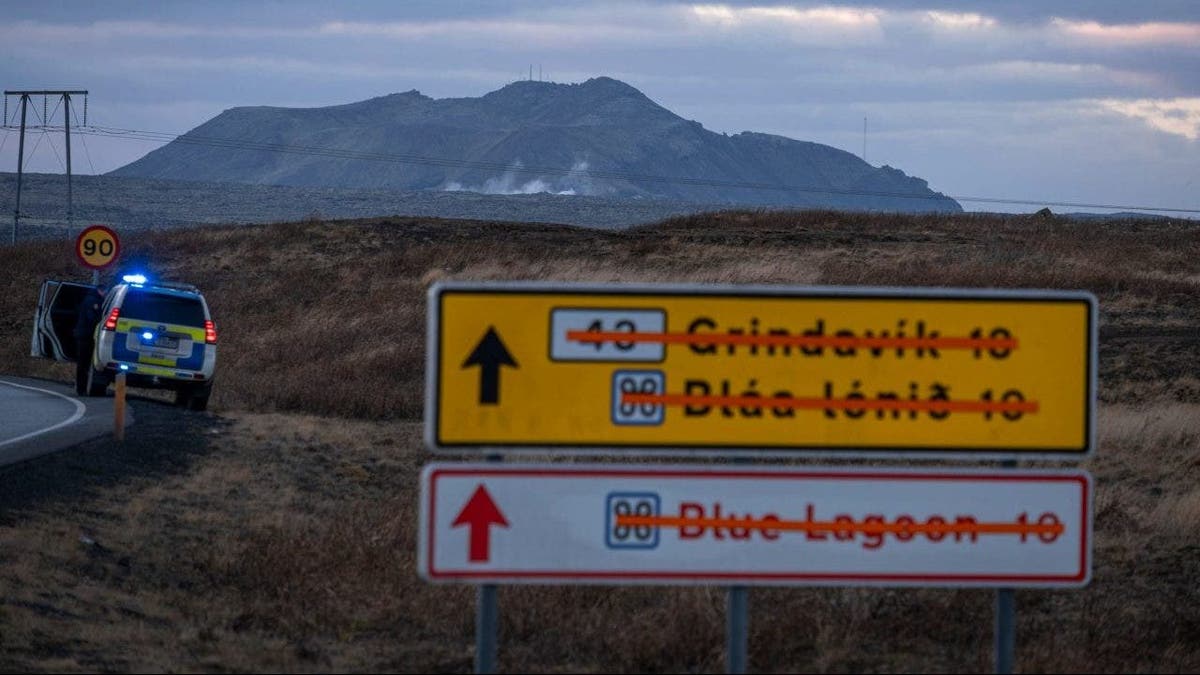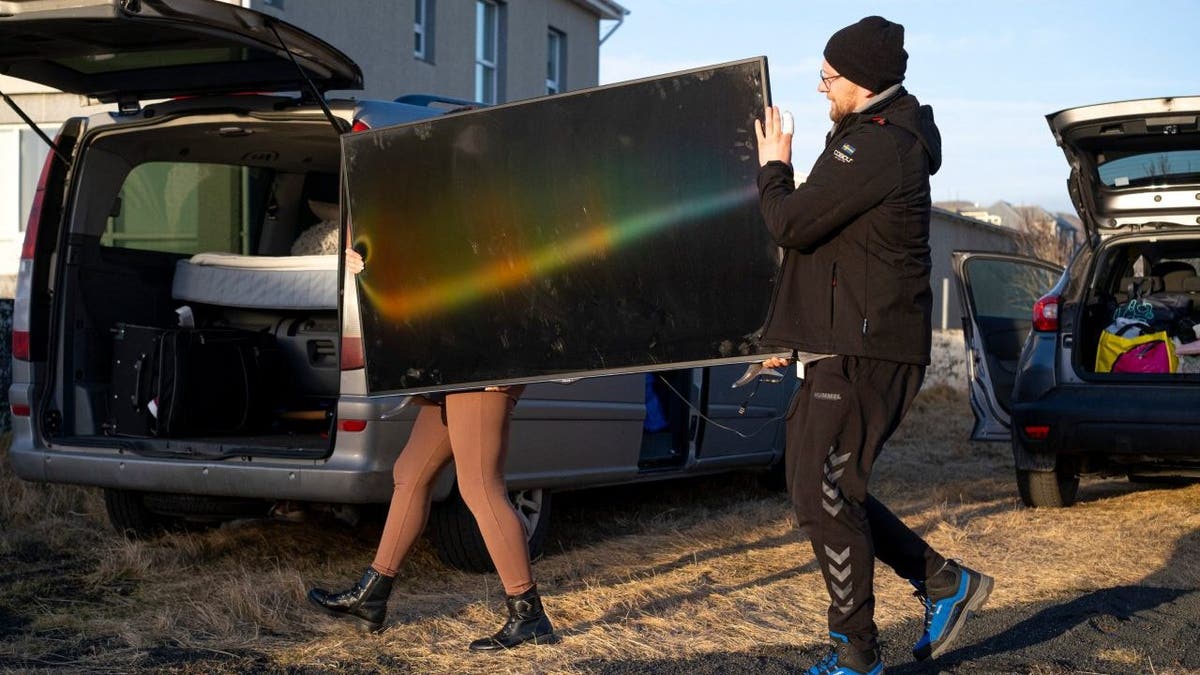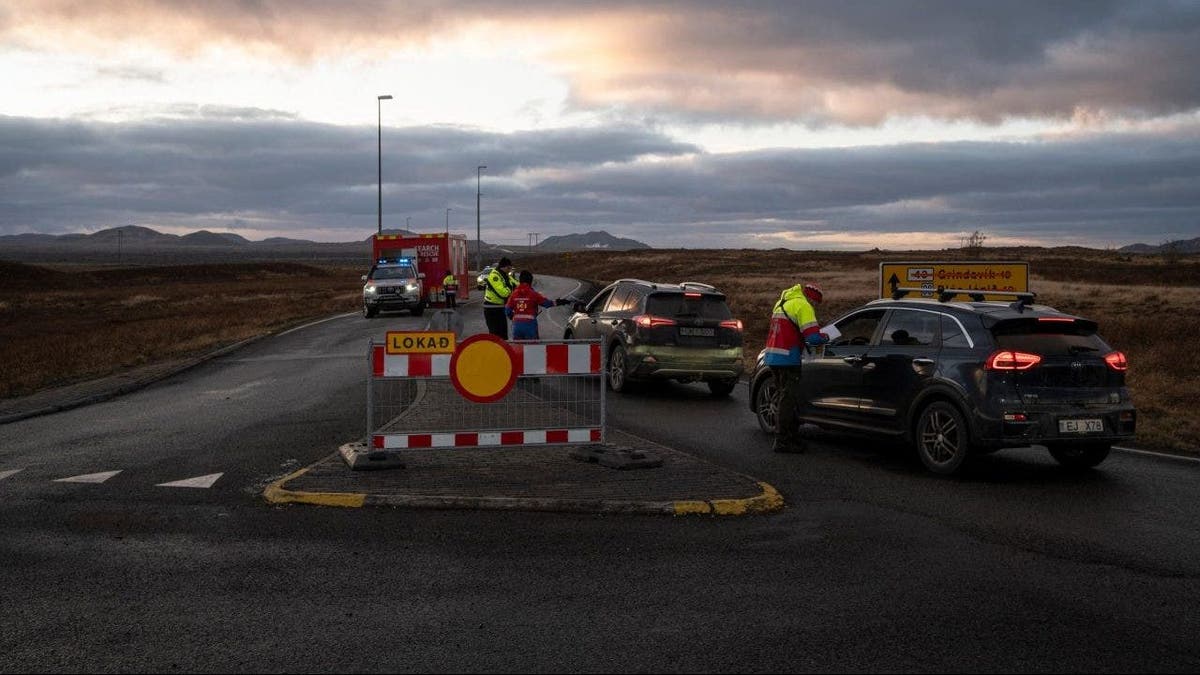Fox News Flash top headlines for November 18
Fox News Flash top headlines are here. Check out what's clicking on Foxnews.com.
Authorities are warning residents of the Icelandic town of Grindavik that it may be months before they are able to return to their homes as volcanic eruption concerns persist.
Grindavik, which was evacuated by the Icelandic government this week after seismic activity and air content analysis pointed to possible eruptions, has been shut down to traffic for the foreseeable future.
Residents have only been given short windows of time to gather their belongings and flee the town, which is believed to now sit on a corridor of magma flowing under the area.
POPULAR TOURIST DESTINATION ICELAND ON EDGE AS EXPERTS FEAR IMMINENT VOLCANIC ERUPTION

The road to Grindavik is closed by emergency services and police. Access is only possible with special permits. The magma continues to approach the surface and an eruption is expected in the next few days. The Icelandic police and emergency services have arranged a day to allow some of Grindavik's residents to get home to collect some belongings. (Raúl Moreno/SOPA Images/LightRocket via Getty Images)
The Icelandic Meteorological Office said since midnight yesterday, around "800 earthquakes have been measured, most of them in the middle of the magma dyke at Sundhnúk at a depth of about 3-5 km [1.8 to 3.1 miles]."
"Seismic activity has remained constant since 11th of November. The main monitoring focus on seismic activity remains in the area of the dyke and Grindavík," the Icelandic Meteorological Office said.
Sundhnúk is a little more than 2 miles to the north-northeast of Grindavík.
ICELAND OFFICIALS SAY ‘HIGH’ VOLCANIC ERUPTION POSSIBILITY AS HUNDREDS OF EARTHQUAKES HIT REGION

This photo shows inhabitants carrying belongings from their homes to a vehicle in Grindavik, southwestern Iceland, following earthquakes. The southwestern town of Grindavik -- home to around 4,000 people -- was evacuated in the early hours of November 11 after magma shifting under the Earth's crust caused hundreds of earthquakes in what experts warned could be a precursor to a volcanic eruption. (KJARTAN TORBJOERNSSON/AFP via Getty Images)
FOX Weather reported that sulfur dioxide gas was detected in the air in Grindavík yesterday, a sign of possible imminent volcanic activity.
Video and images also have emerged appearing to show smoke rising out of cracked roads in Grindavík in recent days.
Iceland sits in the middle of the Mid-Atlantic Rift, which makes it a hotbed for geothermal activity. There are over 130 volcanoes here, as well as a variety of geysers and volcanic fissures.

The emergency services and the police check the residents of Grindavik to see if they have permission to collect things from their homes. The magma continues to approach the surface and an eruption is expected in the next few days. The Icelandic police and emergency services have arranged a day to allow some of Grindavik's residents to get home to collect some belongings. (Raúl Moreno/SOPA Images/LightRocket via Getty Images)
CLICK HERE TO GET THE FOX NEWS APP
Iceland is a Nordic nation. The first people said to have explored the island were Vikings from Norway, who settled here as early as the ninth century.
Norwegian societies created an Icelandic Commonwealth, which eventually fell under Danish rule.
Iceland became an independent republic in 1944.
Fox News Digital's Danuta Hamlin and Greg Norman contributed to this report.









































